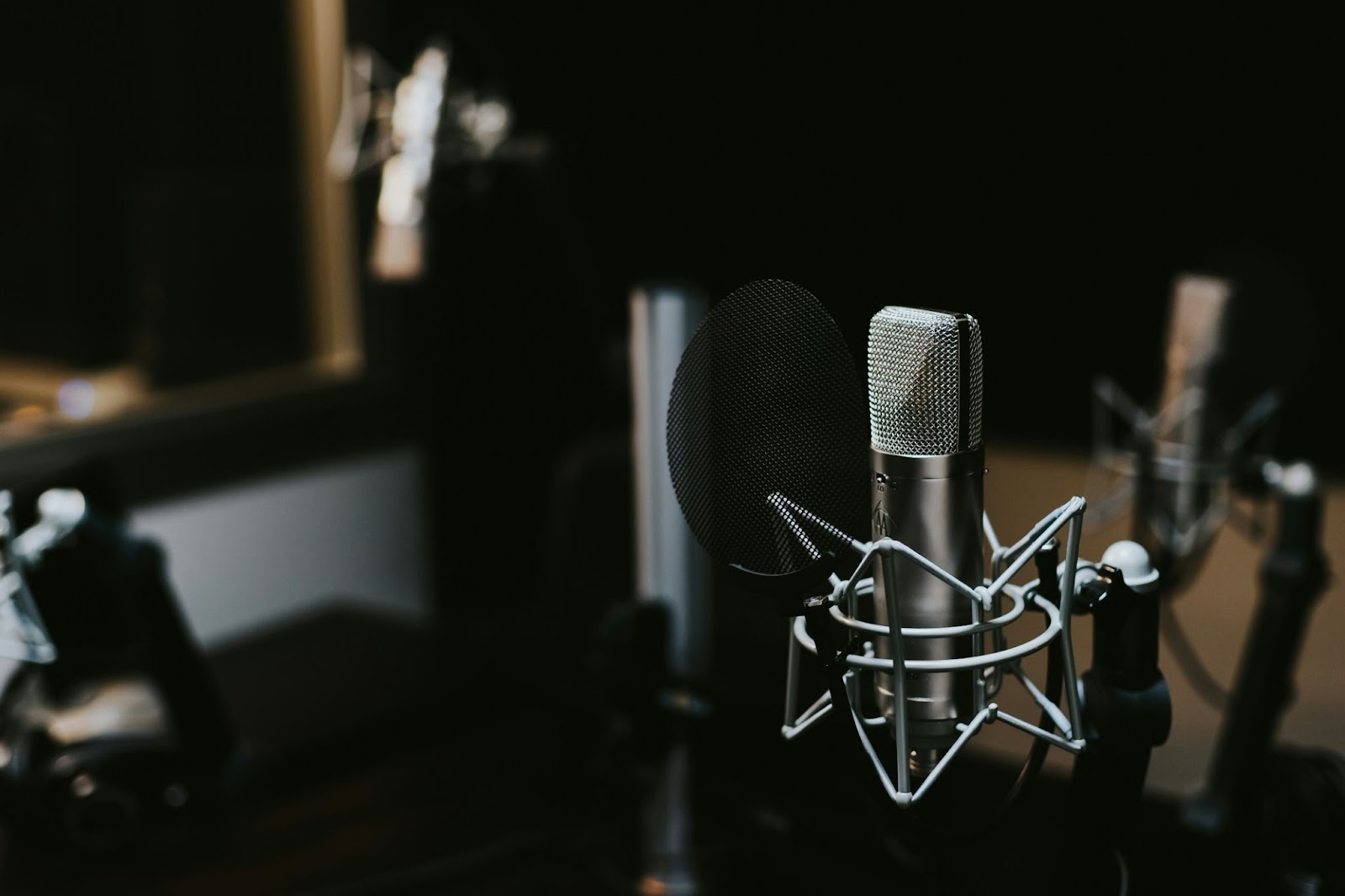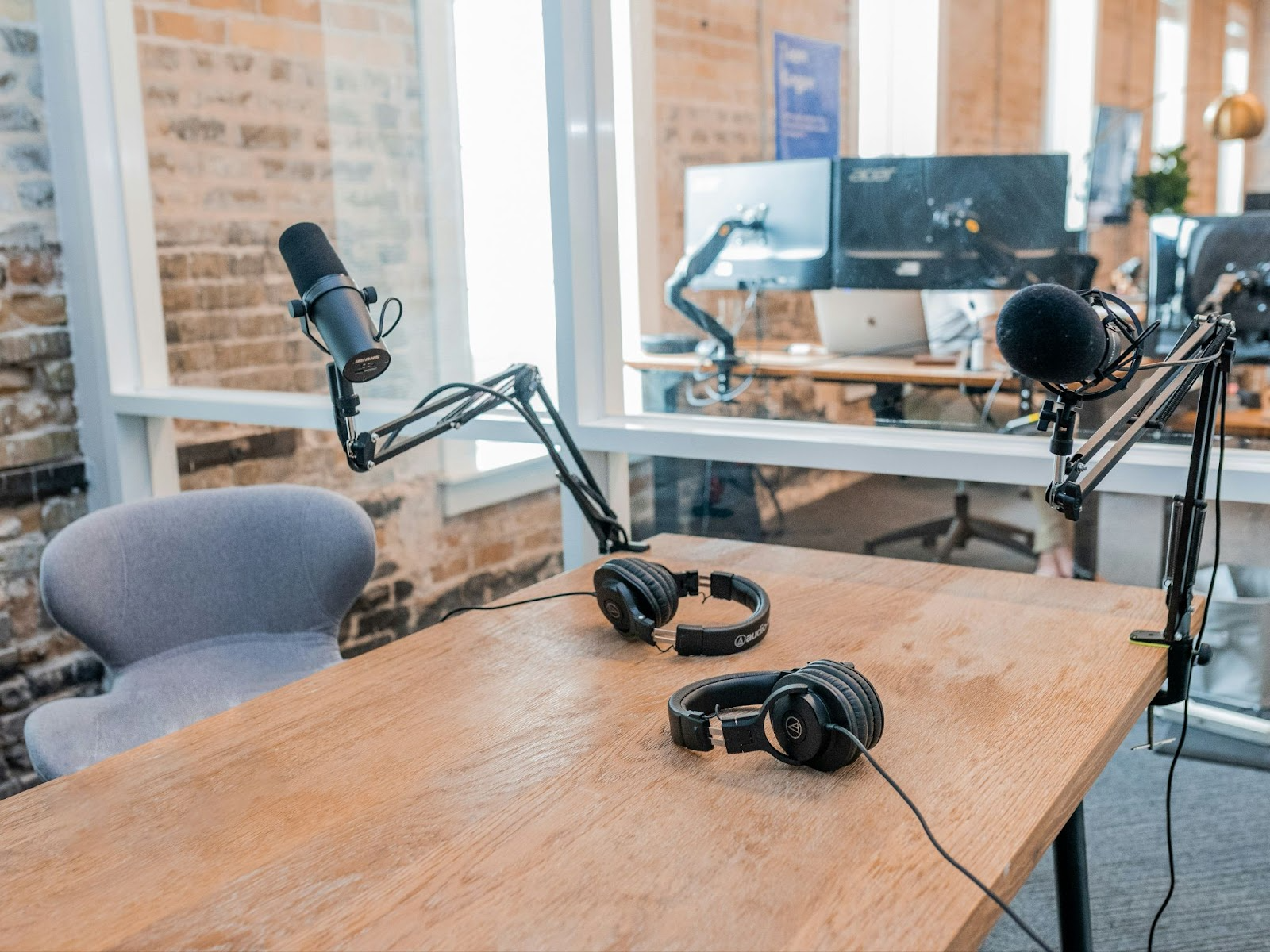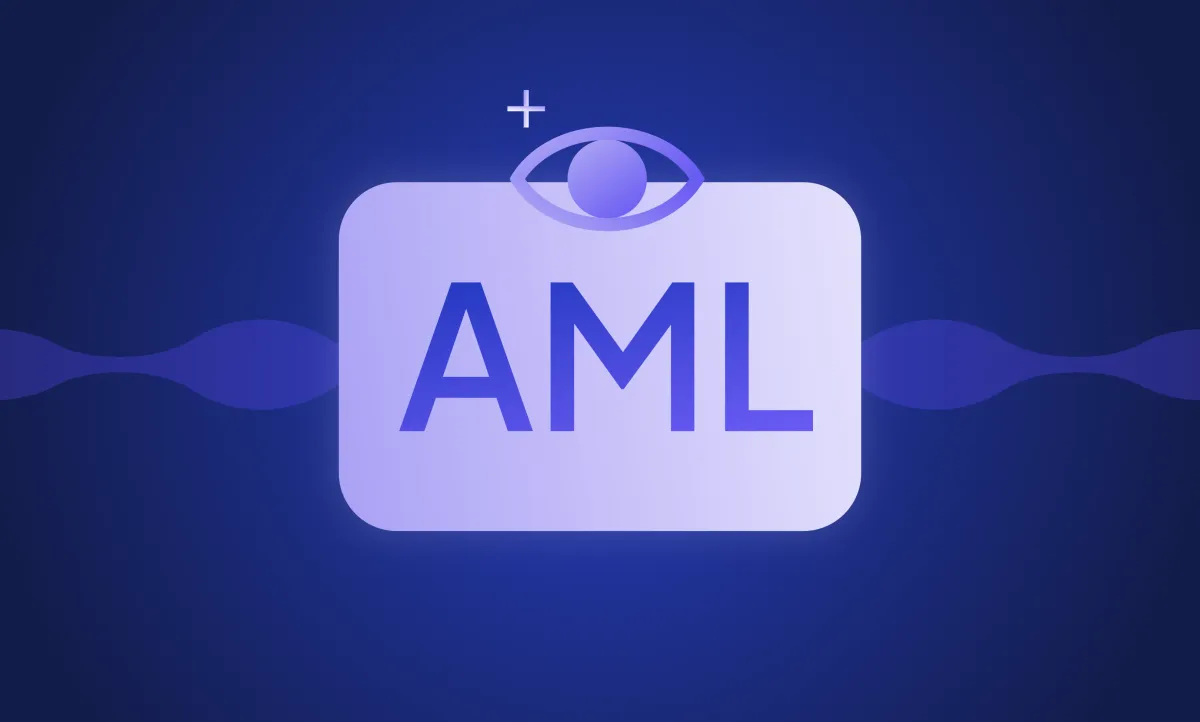You wouldn’t think that owning a podcast business would subject you to fraud risks, but within this growing industry, danger might be closer than you think. Apple Podcasts, as one of many platforms for hosting podcasts, is home to over 2.8 million podcasts as of April 2025.
In this guide, we’ll look at the vulnerabilities that fraudsters use to exploit podcast businesses. We’ll also explain the role of Anti-Money Laundering (AML) compliance for podcasters handling ad revenue, sponsorships, donations, and subscriptions. That way, your focus stays on the microphone while your money flows stay clean.

Understanding fraud in the podcasting industry
Like many types of fraud, fraudsters have a real knack for finding vulnerabilities. From the listeners who enjoy the podcast to advertisers who spend their money on the podcast itself.
Understanding what type of fraud goes on in the podcasting industry will help provide the information podcast owners need to protect themselves, their audience, and the advertisers.
Fraud risks involving your payment partners
What many podcasters overlook is that the moment money enters the picture, through sponsorships, affiliate sales, premium memberships, or donations, they’re part of the broader financial ecosystem. And that’s where AML comes in, ensuring your podcast isn’t unknowingly used for money laundering, fake sponsorship deals, or fraudulent payments.
So whichever payment system you’re using (Stripe, PayPal, Patreon, or a podcasting marketplace), it’s worth checking whether they rely on trusted AML service providers. If you see names like SEON, Acuris, or NICE in the mix, you know your transactions are being monitored to the same standard as major financial institutions.
Common fraud risks for podcasters
There are a number of threats that are used to exploit podcasters and their listeners. With that being said, here are some of those risks, with examples of fraud attempts that have happened before to podcasts.
Phishing scams
Phishing scams are one of the most common ways podcasters get targeted. Scammers might send fake invitation emails or messages, pretending to be well-known production companies, celebrities, or influencers. Their goal is to trick you into clicking on malicious links or handing over sensitive information that they can exploit. To protect yourself from phishing scams, it’s important to regularly verify the authenticity of incoming emails using trusted tools such as email header analyzers. Solutions like EasyDMARC email header analyzer, MXToolbox, Sendmarc, or even built-in options like Google Admin Toolbox can help you inspect headers, identify suspicious signals, and confirm whether a message is part of a malicious attack.
Deepfake and voice spoofing
Artificial intelligence is being used more and more for suspicious activity. In fact, more than 50% of fraud involves the use of artificial intelligence.
Criminals will use AI technology to clone a person’s voice, creating audio that’s incredibly realistic. That could then be used in fraud attempts towards the podcaster, listener, or advertiser, depending on the scammer’s intent.
False sponsorships
Fake brands reaching out with invitations for sponsorships may do so to use that exposure to promote their own scams or fraudulent products.
Scams like this are common, with one influencer by the name of Dina Litovsky being sent an invitation to be on a podcast that promised her money, only for it to turn out to be a scam.
Account takeovers and data breaches
It’s why two-factor authentication and being extra vigilant with sharing your information are crucial when reducing the risk of fraud. Account takeovers and data breaches are very common amongst businesses, and podcasters expect that same level of threat if they’re not careful.
Fraudulent content and services
From investment scams to scam content disguised as legitimate business opportunities, there are a number of scams involving content and services. False advertising is part of this umbrella of criminal activity, with AI again being used to promote illegal products or deceptive schemes.
The damage of fraud on podcasts
Now that you know the types of threats podcasters face, what kind of impact can they have? Just like any successful scam or attack on a business, podcasts can suffer serious consequences. Those risks include:
- Reputational damage – if your platform is linked to shady sponsors or unauthorized transactions.
- Financial loss – direct theft or having to refund laundered donations.
- Legal and regulatory consequences – if your payment partner flags your account for suspicious activity because AML rules were breached.
Which podcasts are most at risk for fraud
Are some podcasts more at risk than others? While no podcast is completely immune when money is involved, some are naturally more attractive targets. If your show falls into any of these categories, it’s especially important to use platforms and partners with strong AML protections.
Monetized podcasts
For any podcasts that are monetized through accepting sponsorship payments, ad revenue, or listener donations, they will attract fraudsters.
Regulated or sensitive industries
If your podcast is regulated or is a sensitive industry to cover, such as finance, crypto, health, or politics, then this might also put you at risk.

Podcasts with large and engaged audiences
Any podcasts with larger or engaged audiences will naturally pose an attractive opportunity for fraudsters. The larger your audience becomes, the more of a target you are.
Podcasts that offer premium memberships or subscriptions
Any podcast that offers premium memberships or subscriptions, including ecommerce-focused shows that sell products or exclusive content, can be at risk of subscription fraud and account takeovers. Both of these directly impact revenue and can create headaches for creators and listeners alike.
How AML and trusted partners keep your podcast safe
Anti-Money Laundering (AML) is a set of financial compliance practices designed to stop money laundering and terrorist financing. For podcasters, that translates into cleaner ad payments, safer cross-border donations, and verified sponsorships.
Rather than podcasters setting up AML systems themselves, the key is choosing platforms, processors, and partners that build AML into their services.
Checking that your payment partners are AML-compliant
It’s not enough to just assume the platforms you use are protecting you. If you’re accepting money, you’re technically handling financial transactions. And that means AML compliance matters.
The safest move is to make sure the platforms and tools you use for payments and memberships rely on reputable AML service providers.
What should you be looking for? At a minimum:
- Real-time monitoring so suspicious transactions get flagged immediately instead of after money has already moved.
- Easy integration so your hosting or payment system ties into AML checks without slowing down your workflow.
- Support and training so you and your team actually understand the basics of compliance, instead of treating it as a mystery box.
- Scalability, because as your audience (and revenue) grows, so do the risks of fraud and AML obligations.
Think of it like insurance. You might never need to lean on these protections, but if you do, you’ll be glad your platforms took AML seriously. Choosing a partner that ignores these safeguards is asking for trouble. And in the worst case, it could drag your podcast into financial or even legal issues you never signed up for.
Practical steps to keep your podcast revenue safe
Handling money in your podcast can feel like walking a tightrope. You want to focus on your episodes, not worry about getting scammed. A few simple habits can save you a lot of headaches.
Learn to spot shady offers
Fraudsters are sneaky. They’ll pose as big brands, fake sponsors, or even influencers to trick you into handing over money or sensitive info. Keep an eye out for anything that feels off: unsolicited sponsorship emails, promises that sound too good to be true, or sudden requests for upfront payments. Trust your gut. If it feels sketchy, it probably is.
Use platforms that watch your back
Pick hosting and payment platforms that flag suspicious activity in real time. That way, if a scammer tries to slip through, you catch it before it turns into a bigger problem. Whether it’s a weird donation pattern or a dodgy ad payment, your platform should act like a security net while you focus on your podcast.
Double-check sponsors and partners
Even people who seem legit deserve a quick check. Make sure any sponsor or partner is who they say they are. Think of it like a quick “identity audit”, a tiny bit of extra effort that keeps your podcast from being used for someone else’s scam.
Keep an eye on new revenue streams
Growth is awesome, but more listeners and revenue mean more opportunities for fraudsters to try their luck. When you add a new donation button, subscription tier, or ad deal, pause for a moment and make sure the protection you have scales with it.
The simple reason AML matters for podcasters
AML isn’t about turning your podcast into a bank. It’s about making sure the money you receive from sponsors, memberships, or donations is legitimate and that your listeners and partners are protected from fraud.
Working with platforms that monitor transactions, verify partners, and flag suspicious activity helps you avoid scams, chargebacks, or reputational damage. The most valuable part is that it lets you focus on growing your audience and producing quality content, knowing your revenue streams are secure.
A practical step is to regularly check which AML providers your platforms use and review your sponsorships or payment partners for anything unusual.

Author Bio: Natalie Griffiths (LinkedIn)
Natalie is a freelance writer with five years of experience in copywriting for businesses, spanning many industries.








